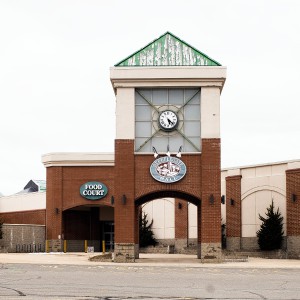Greenhouse agriculture blooming
| Published: 07-27-2023 5:56 PM |
In June during a stop in Manchester, U. S. Department of Agriculture Secretary Tom Vilsack announced a $320 million program to foster agricultural production and strengthen food supply chains in 19 states across rural America.
“We are partnering with entrepreneurs in rural areas to build brighter futures, connect business owners to new markets and create good jobs for generations to come,” Vilsack said.
Berlin is the site of one of those projects that Vilsack highlighted. The North Country Growers project — currently in the midst of a rapid construction phase — will be 20 acres of state-of-the-art greenhouses near the Androscoggin River where multiple varieties of salad greens and other vegetables will be produced year-round.
“Always very fresh, always locally grown,” said Marguerite Piret, the chief financial officer of American Ag Energy, the parent company of North Country Growers, said about the products to be grown in and shipped from Berlin by Q1 of 2024.
The North Country Growers facility is slated to be New England’s first greenhouse utilizing combined heat and power (CHP) technology. When fully operational, the site will have more than 80 full-time employees.
Piret said the large greenhouse agriculture concept was first created at the end of World War II in Northern Europe to help feed a war-torn continent. After decades of technological innovation and the need for strong ecological practices as the impacts of global climate change become more apparent, the North Country Growers project might be an important preview of coming attractions.
“The market for commercial greenhouses is primarily driven by the rising demand for fresh vegetables farmed nearby,” London-based global research firm Visiongain shared in a 2023 report. “Consumer preferences for fresher and healthier goods, worries about the environmental effects of long-distance transportation, and a desire to support local farmers and the local economy are some of the elements driving this trend.”
Visiongain estimates the global commercial greenhouse market reached $36.2 billion in 2022 and is expected to have more than double-digit growth in the next decade. The report also highlighted the critical sustainability factors driving the need for more greenhouse agriculture.
Article continues after...
Yesterday's Most Read Articles
 Neighboring landowner objection stalls Steeplegate redevelopment approval
Neighboring landowner objection stalls Steeplegate redevelopment approval
 How has Hopkinton, one of the smallest public schools in New Hampshire, become such a lacrosse powerhouse?
How has Hopkinton, one of the smallest public schools in New Hampshire, become such a lacrosse powerhouse?
 Northeast Coffee Festival comes to Concord this weekend
Northeast Coffee Festival comes to Concord this weekend
 Rock ’N Race draws 3,250 participants, still has further to go to meet fundraising goal
Rock ’N Race draws 3,250 participants, still has further to go to meet fundraising goal
 Steeplegate project to reopen to public comment as developer seeks to reduce required parking
Steeplegate project to reopen to public comment as developer seeks to reduce required parking
 High schools: Concord girls’ 4x100-meter relay sets school record at Merrimack Invite, plus more track, baseball, lax and tennis results
High schools: Concord girls’ 4x100-meter relay sets school record at Merrimack Invite, plus more track, baseball, lax and tennis results
“Commercial greenhouses are a crucial tool for encouraging sustainable farming methods since they enable more effective use of resources like water and energy and can lessen the need for artificial pesticides and fertilizers,” the report said. “For instance, improved monitoring systems can assist growers in maximizing resource use and minimizing waste, while hydroponic growth techniques used in commercial greenhouses can use up to 90 percent less water than conventional field farming.”
The Berlin greenhouses are designed for maximum energy efficiency. Rainwater and snowmelt will be collected from the greenhouse roof and used for irrigation, while thermal energy produced during power production can be stored in thermal storage tanks and utilized other times of day. Because growing variables (light, temperature and irrigation) can be closely controlled, a head of lettuce produced in the Berlin greenhouses can be grown in around 17 days — much less than as many as 42 days grown outdoors.
Piret said all refrigerated transportation to regional grocery stores and grocery distributors will be within one day of the greenhouses to help further reduce their carbon footprint.
“We are excited to be involved in a project that provides meaningful impact to the communities we serve,” said David Weed, assistant vice president of business lending at Service Credit Union. Weed and Service Credit Union helped secure around $50 million in federal loan guarantees for the Berlin project.
“The Northeast produce market currently imports about 95 percent of its products from remote locations, and there is a high demand for fresh, locally produced vegetables, not to mention an opportunity to bring growth to this part of New Hampshire,” said Weed, who has been closely watching the project since its 2016 origins.
“This is a new industry, a green industry for Berlin and they (North Country Growers) really believe in giving back and creating real living wages for their staff.”
These articles are being shared by partners in The Granite State News Collaborative. For more information visit collaborativenh.org.


 Adam Montgomery sentenced to minimum 56 years on murder charges in young daughter’s death
Adam Montgomery sentenced to minimum 56 years on murder charges in young daughter’s death Following budget cut, Pembroke revisits future of elementary school re-build
Following budget cut, Pembroke revisits future of elementary school re-build Granite Geek: Free government software for taxes – what could go wrong? (Not much, as it turns out)
Granite Geek: Free government software for taxes – what could go wrong? (Not much, as it turns out)
